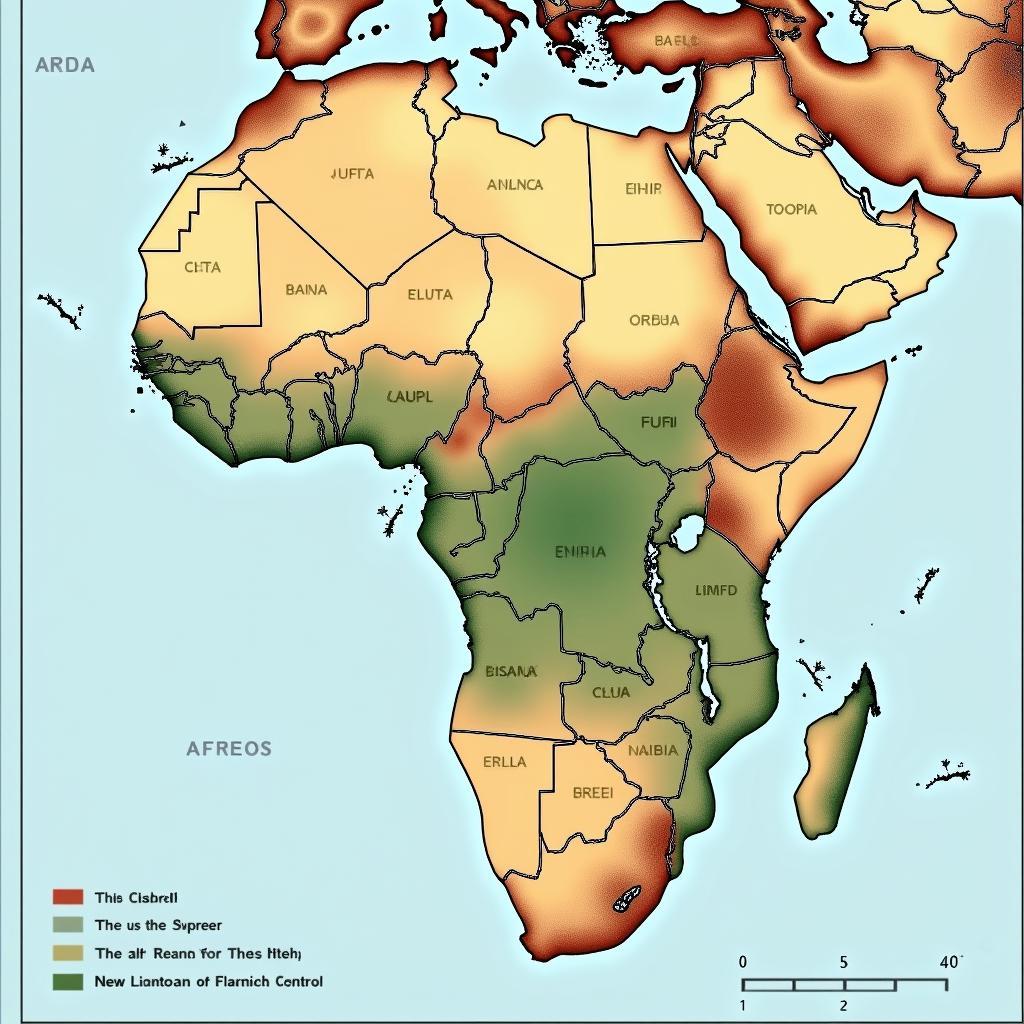African Countries Not Colonized: A Deeper Look
Africa, a continent rich in diverse cultures and histories, often evokes images of colonial pasts. However, the narrative of complete colonization is incomplete. This article delves into the fascinating stories of those African countries that remained, to varying degrees, independent during the Scramble for Africa. Understanding their resilience and unique paths offers a crucial perspective on the continent’s complex tapestry.
Navigating Independence: Ethiopia and Liberia
While much of Africa fell under European rule, a few nations managed to maintain their sovereignty. Ethiopia, a nation with a long and storied history, stands as a beacon of African resistance. Its victory against Italian forces at the Battle of Adwa in 1896 cemented its independence and resonated across the continent as a symbol of hope. This unwavering defense of their homeland ensured Ethiopia remained a sovereign nation, inspiring other African nations in their own struggles for liberation. Liberia, founded by freed American slaves, presents a different narrative. While technically not colonized in the same way as other African nations, its unique origins and relationship with the United States create a complex story that requires careful examination.
Did Liberia truly remain untouched by external influence? The answer lies in examining its early formation and the power dynamics that shaped its development. Were there any African countries that remained entirely untouched by European powers? This question sparks a deeper investigation into the nuances of influence and control during this turbulent period.
The Nuances of Sovereignty: Exploring Varying Degrees of Independence
The story of African independence is not simply black and white. Some nations, while technically under colonial rule, retained a degree of autonomy and internal governance. Examining these nuances reveals a more complex picture of the African experience during this period. This subtle defiance speaks volumes about the enduring spirit of African peoples and their determination to maintain their cultural identities. It challenges the simplistic narrative of complete subjugation and highlights the varied forms of resistance employed across the continent.
What forms of resistance were employed by African nations under colonial rule? This question leads us to consider both overt acts of defiance and the more subtle ways in which African cultures and traditions persisted despite external pressures. How did these subtle acts of resistance contribute to the eventual independence movements across Africa? This inquiry invites a closer look at the long and complex journey toward self-determination.
Unpacking the Colonial Legacy: Impacts and Ongoing Challenges
Even for those nations that escaped direct colonization, the shadow of European influence loomed large. Economic pressures, political maneuvering, and the broader global landscape shaped the destinies of all African nations. Understanding these complex dynamics is essential to grasping the full scope of African history. This interconnectedness reminds us that the struggle for independence was not an isolated event but part of a larger global movement against colonialism and oppression.
African countries and their colonial rulers
How did the legacy of colonialism affect the development of African nations, even those not directly colonized? This question pushes us to consider the long-term impacts on economic structures, political systems, and social dynamics. Were there any long-term benefits for the countries that avoided colonization? This question encourages a nuanced understanding of the complex historical interplay between African nations and European powers.
Lessons from the Past: Resilience, Resistance, and the Future of Africa
The stories of African nations that resisted colonization offer valuable lessons for the present and future. Their experiences highlight the importance of self-determination, cultural preservation, and the enduring strength of the human spirit. By understanding these historical narratives, we can gain a deeper appreciation for the complexities of African identity and the ongoing struggle for true independence.
 Map of Africa Highlighting Independent Nations During Colonization
Map of Africa Highlighting Independent Nations During Colonization
African country of new extended
Conclusion
The narrative of “African Countries Not Colonized” is multifaceted. While Ethiopia’s staunch resistance serves as a powerful example of African agency, Liberia’s unique history reminds us of the complexities of sovereignty. Examining these stories challenges simplistic narratives of colonization and provides a deeper understanding of the diverse experiences and resilience of African nations. Understanding these nuanced histories is crucial to fully appreciating the rich tapestry of African experience and the ongoing struggle for self-determination.
FAQ
- Was Ethiopia completely untouched by European influence?
- What role did the United States play in Liberia’s development?
- How did African nations resist colonial rule beyond armed conflict?
- What are the long-term economic impacts of colonization on African nations?
- How do the stories of Ethiopia and Liberia contribute to our understanding of African identity?
- What are the ongoing challenges faced by African nations as a result of their colonial pasts?
- How can we learn from the resilience of these nations in navigating contemporary global challenges?
Situations with frequent questions
Visitors often ask about the specific strategies employed by Ethiopia to maintain its independence, the internal political dynamics of Liberia during the colonial era, and the broader impact of these two nations’ experiences on the Pan-African movement.
Further Exploration
You might also be interested in articles about African countries demands in consumption, the history of specific colonial powers in Africa, and the ongoing efforts to address the legacies of colonialism.
Call to Action
For further assistance or information, please contact us at:
Phone: +255768904061
Email: kaka.mag@gmail.com
Address: Mbarali DC Mawindi, Kangaga, Tanzania.
Our customer service team is available 24/7.
